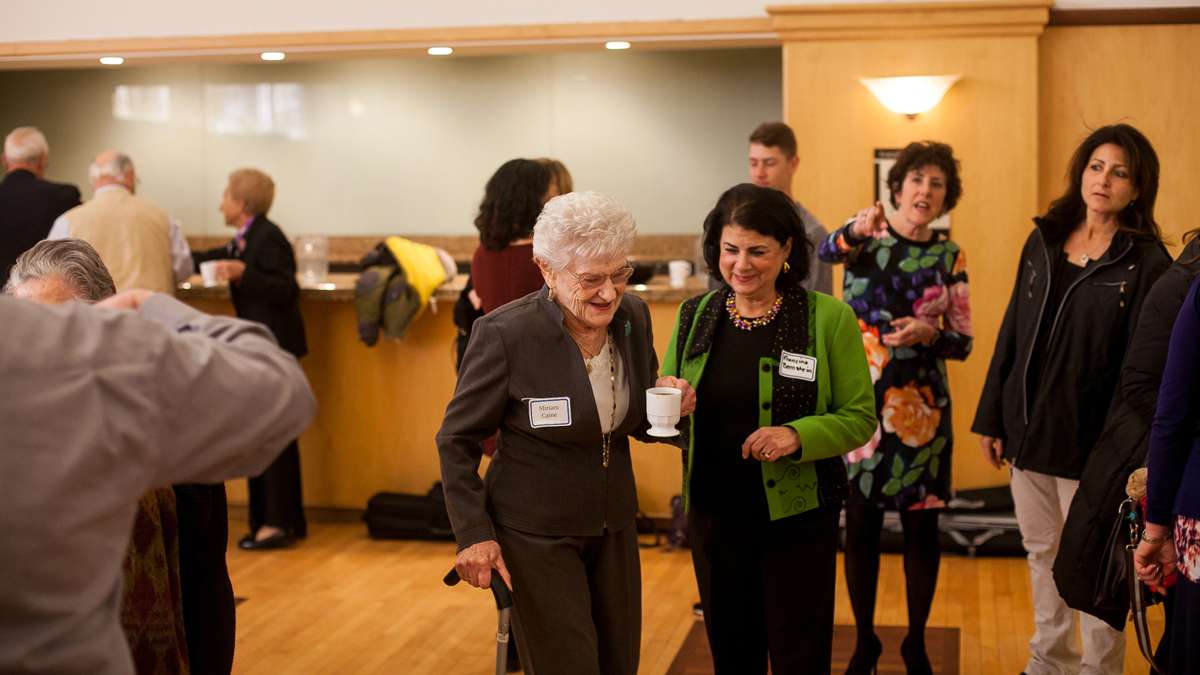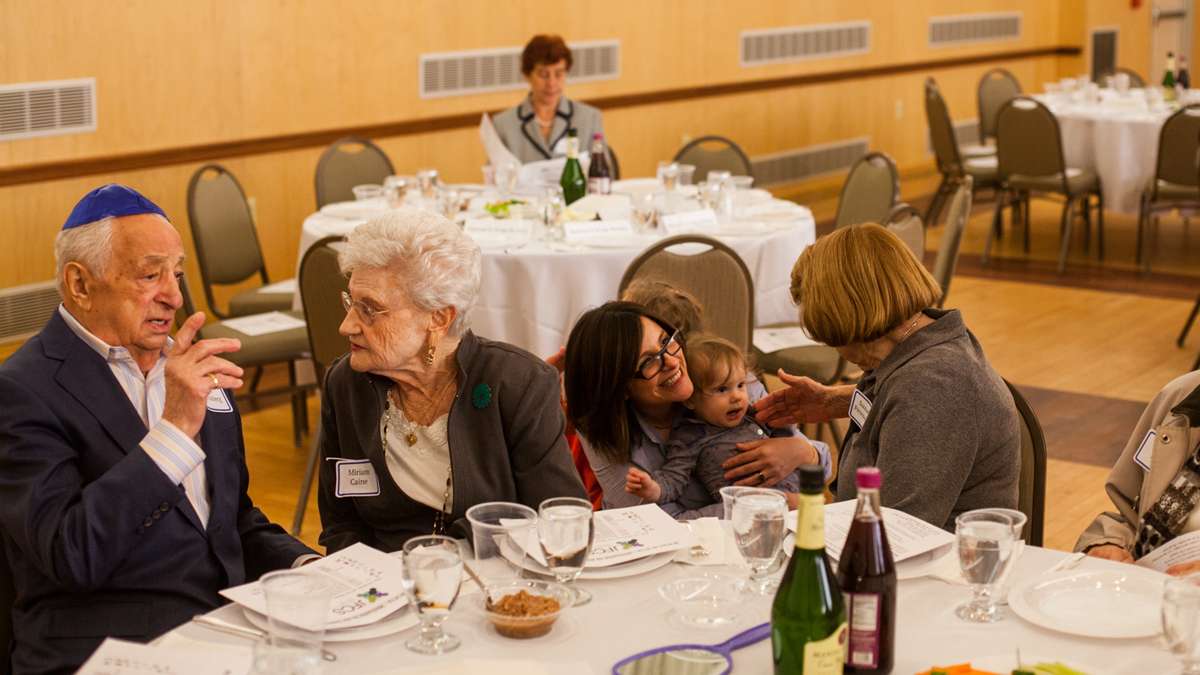At special Seder, Holocaust survivors entrust stories of endurance to the young [photos]
ListenIn the run up to the Passover holiday, Jewish Family and Children’s Services designed a dinner to help the next generation learn about the Holocaust from those who survived it.
Fifteen-year-old Olivia Gusdorff didn’t mind the abridged Haggadah, or that grape juice substituted for wine — she was there for the company. For her, the chance to share traditions with other generations adds meaning to the holiday. And, she said, hearing directly from Holocaust survivors makes her look at current events differently.
“When these refugees don’t have homes and they’re trying to escape their troubles also, I think it’s important that we think back to the Holocaust and like World War II. In general, what can we do differently?” said Olivia. “I think it’s important to not forget what happened and not make the mistake of doing too little.”
‘Tell the story’Commemorating the biblical account of the Jewish people’s escape from slavery to freedom, the rabbi asked for guests to share a trial from their own lives.
Taking the mic, Michael Herskovitz described his childhood in a small village of what was then Czechoslovakia. Already forced to wear a yellow star on his clothing, enduring threats at work and school, Herskovitz said Nazi troops came to his family’s home at a precise time.
“They usually did everything during Jewish holidays. Because they knew everybody who lived in a Jewish home, Saturday is at home,” he said. “Saturday morning, when it was dark, they knocked on the door and said, ‘Wake up the family. Dress them how you want, we got to keep moving on.’ So mom grabbed a pillowcase and put some stuff in there — gave us each a shirt, two pairs of pants — and we wind up in a ghetto.”
Shortly after arriving in the Uzhgorod ghetto, Herskovitz and his family were loaded onto freight trains heading to the infamous concentration camp Auschwitz in Poland.
Once there, his family was divided. He went with his father. As they were changing into the camp’s uniform, “I let my father’s hand go — and that was the last time I saw my father,” Herskovitz said. He was just 15 years old.
Mario Gherovici also shared his exodus story. He and his family were forced into the Kishinev (or Chisinau) ghetto, in what is now Moldova. Mass murders were carried out in the ghetto and bombings killed many others. His father was a doctor, and his mother was a dentist, so his parents trained Mario in first aid for survival.
During a Soviet-led bombing campaign in 1944, he escaped with his father to Bucharest, Romania, where his mother and sister were waiting.
After the war, amid insecurity from Romania’s new Communist government, Gherovici left for South America. Landing in Argentina, he lived there illegally for three and a half years. After obtaining his citizenship, he met his wife Marta, and worked as an engineer.
For him, freedom happened in two parts — surviving the war itself, and then surviving the memory.
“I had the pleasure to be bombed by the Germans, Russians, Americans, British, then Germans again. And my wife discovered, many nights, I had nightmares. I was speaking German, talking in Russian. I continued the war 10 years after the war ended,” said Gherovici.
Remembering the past, starting anew.After raising a family through Argentina’s own period of dictatorship, the Gherovicis followed their children to the U.S. 15 years ago. They are now part of a Holocaust survivors program run by Jewish Family and Children’s Services.
Serving more than 150 families in Philadelphia, director Eli Shostak said the program helps survivors stay in their homes and connect with their community. Taking care of the human side of the Holocaust has been a lifelong mission for Shostak. His own grandparents were survivors.
“There’s that sustainability factor, making sure everyone feels comfortable and safe in their environment,” he said. “And then there’s getting out, being a part of something. One of the greatest mitzvot — the commandments — that we have on Passover is to tell the story.”
Despite knowing seven languages, it’s often hard for Gherovici to retell his life’s experiences. Not a particularly religious person, he encourages young people to treat others with compassion, read widely, and to enjoy what they have.
“You know, many times I am saying to my wife, Philadelphia is the safest city in the world. She says why? I say you don’t have to carry a gun. And you walk on the street and no one is attacking you. It’s the safest city in the world,” he said.
His wife, Marta, interrupted, “Even if you read the news.”
But Gherovici continued, “It’s funny to say, but to me Philadelphia is a paradise.”
WHYY is your source for fact-based, in-depth journalism and information. As a nonprofit organization, we rely on financial support from readers like you. Please give today.














